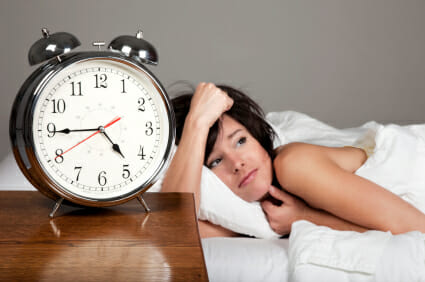How are you sleeping?
The minute my head hits the pillow, my body relaxes and my mind starts into overdrive and I am having trouble getting to sleep. Did you know the main cause of Insomnia is worry? I have a lot on my plate right now and that’s what I do, I worry when I finally have the time to rest. Missing even one night of good sleep can cause you to have adverse issues.
How much sleep do you need?
Most adults need 7 to 8 hours of uninterrupted sleep each night. If you find you are waking up several times during the night. You probably are not going to feel rested in the morning. And if you are not getting the needed 7 to 8 hours you can have actual physical health consequences.
Newborns = 16 to 18 hours of sleep per day
Preschool Age = 11 to 12 hours of sleep per day
School Age = 10 hours of sleep per day
Teenagers = 9 hours of sleep per day
Adults = 7 to 8 hours of sleep per day
What are the benefits of a good night”s sleep?
With a good night’s sleep we are alert, happier and function better. We all want our family and co-workers to have slept well. No one wants to deal with irritable, moody people, who can’t focus and struggle to do their work. A lack of sleep can lead to using poor judgment. Everyone has heard someone say “Fine, let’s go with that, I am too tired to come up with another solution”.
Your body repairs and rejuvenates itself while it sleeps. While you are sleeping you experience muscle growth, tissue repair, grow hormones are released and proteins are synthesized.
Improves immune function, adequate sleep increases your chances for healing. When we are sick we are told to go to bed, this is good advice. Your body fights infections best when you are at rest.
A good night’s sleep improves your ability to learn and retain information. Your brain uses this time file information. Getting the proper amount of sleep increases your memory capacity and your ability to learn.
Adequate sleep helps you avoid accidents and injuries. When you are well rested you are alert and aware of your surroundings and less likely to have an accident that comes from the lack of focus.
A good night’s sleep helps you avoid: Obesity, Diabetes, and Cardiovascular Disease. There is still a debate raging over whether these diseases affect sleep patterns or a lack of sleep helps bring about the disease. At this time what is known is that there is a link between sleep and these specific diseases.
What happens when you can’t sleep?
Bad Mood
If you are getting 4 ½ hours or less of sleep per night you are going to be irritable and grumpy at the least. This few hours of sleep can lead to depression, can cause chronic anxiety, you are likely to be less optimistic and less social.
Increase Risk of Diabetes
Diabetes is a disease that is caused by the inability of the body to regulate blood glucose levels properly. Glucose is the energy carbohydrate used by cells for fuel. While we sleep our body adjusts the glucose in our blood stream. Sleep deprived individual”s process glucose more slowly than those getting adequate sleep. Those who sleep less than 5 hours per night increase the risk of becoming Diabetic.
Hypertension – High Blood Pressure
A healthy individual who has a sleep deprived night will register a higher blood pressure than their normal the next morning. If you are a person who already has high blood pressure your blood pressure can remain elevated over the entire next day. High blood pressure or hypertension can lead to strokes and Cardiovascular Disease.
Increase in Obesity
Insufficient sleep can cause weight gain. Adults who sleep less than 6 hours per night have a higher BMI than average. People who sleep 8 hours per night have the lowest BMI. (BMI ” “ Body Mass Index – Is a measurement of the relative percentages of fat and muscle mass in the human body)
Decrease in Productivity
In the workplace, workers who are sleep deprived show reduced efficiency in their tasks, a decrease in productivity, and more errors and are more likely to have an accident. Keep in mind how dangerous a sleep deprived truck driver or delivery person is behind the wheel, when they have an accident lots of people can end up hurt.
What things can affect you getting a good night”s sleep?
Large Meals Late in the Day
That”s right, if you fuel up real close to bed time you can have trouble falling asleep. Large meals influence digestion and heartburn. Both of these can make getting to sleep difficult and staying asleep difficult.
Restless Leg Syndrome
People who suffer with RLS have difficulty falling asleep due to their condition. You will have to see a doctor and work on some treatments in order to be able to get a good night”s sleep.
Drinking Alcohol
Alcohol when consumed starts out as a relaxer but once that affect wears off alcohol is a stimulant. Therefore, if you do drink and go straight to bed, you may fall asleep hard for a while but then wake up several times causing very interrupted sleep. And interrupted sleep can leave you feeling tired and irritable the next day. So avoid alcohol if you are having trouble sleeping.
Vigorous Exercise
Exercise is SO good for you. And you should exercise whenever you can. But if you do vigorous exercise close to bedtime you may have trouble falling asleep. Exercise gets your body all revved up and you can have trouble quieting your body to allow yourself to sleep.
Naps
If you are having trouble sleeping at night you need to avoid naps. There are some people who are exceptions to this rule, but most of us will find that if we take a nap in the middle of the day at night we are lying in bed wide awake waiting for sleep to come. If you do need a nap, take a 20 minute nap. Anything longer than 20 minutes starts to affect your nighttime ability to sleep. (Napping for little children is still a good thing, for both the child and the care giver).
One of the benefits of a good night”s sleep is it helps regulate blood sugar levels. A nap is not enough time for the body to adjust the levels of glucose (blood sugar) in your body.
Smoking
I know, the smokers out there are going to claim that a cigarette helps them relax and having never smoked I can”t dispute their argument. However, smoking is a stimulant and a stimulant close to bedtime is what we are trying to avoid.
Night Shift
Night shift workers struggle with getting the proper amount of sleep during the day. Consider there is more light, more noise and it seems contrary to your body”s natural rhythms to sleep during the day.
Jet Lag
When you fly to a time zone that is more than 1 hour off of where you started, you are probably going to struggle with the change. Flying eastward seems to be worse than flying westward. However, when I flew west to Hawaii I was ready for bed at 7pm, not a good thing. To deal with jet lag make sure you are getting good sleep the nights before you travel. That will help you not be sleep deprived when you land. If there is time adjust your sleep routine slowly still accommodating 8 full hours.
Caffeine
Avoid caffeine it is a stimulant and that is the last thing you need, so no coffee or caffeinated soda after 4 pm.
Routine
Our bodies are creatures of habit. Establishing a sleep routine will help you get a good night”s sleep. Try and go to bed at the same time every night and get up at the same time every morning. Perform the same routine functions when preparing for bed, wash face, brush teeth, pajamas etc. in the same order. If you like to read before falling asleep, then do that every night. Try not to read a book that you can”t put down or you may find you are staying up to find out what happens next. If you are still struggling with getting to sleep, try a hot bath. The warm water will help to relax your muscles. Once you get into a comfortable routine your body will expect sleep to follow and will work with you. Following this routine when you travel will also help clue your body into what you expect to happen, a good night”s rest.
Do you need to see a doctor about your inability to sleep?
If you are dealing with Chronic Insomnia, meaning you haven”t slept well for a long time and your day to day functioning is being affected, then you need to seek help. Make an appointment with your health care provider to see if they can pinpoint a cause or provide some medication.
If you are dealing with what could be a Sleep Apnea, waking multiple times every night caused by the closing of airways, you need to call your doctor. There are many things your doctor can suggest. Some as simple as weight loss or changing sleeping positions and others like a dental device that goes in your jaw to a CPAP machine that supplies needed air through the nose.









